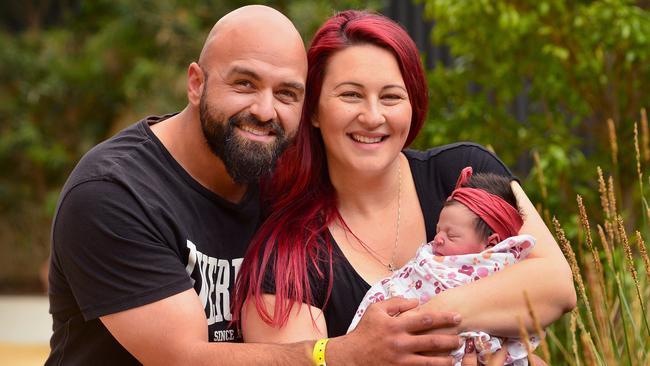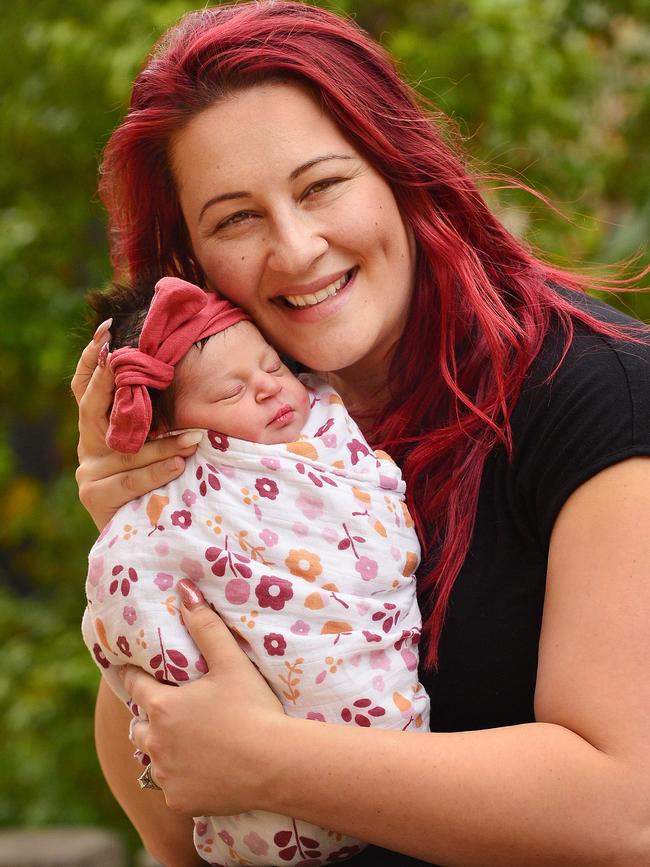How Generation Victoria could shape lives of the future
Up to 150,000 Victorian newborns are set to be tracked from birth to old age in a bid to aid medical research.

Victoria
Don't miss out on the headlines from Victoria. Followed categories will be added to My News.
One of the world’s largest baby drafts could place Victorian scientists at the forefront of medical research for decades to come.
The Generation Victoria — or GenV — study will recruit up to 150,000 Victorian newborns over the next two years so an entire generation can be tracked from birth to old age, examining every aspect of their health and wellbeing.
The Murdoch Children’s Research Institute hopes GenV will provide real-time insights into an entire population, speeding up breakthroughs into health issues such as asthma, chronic illness, food allergies, obesity, genetic disorders, autism and mental illness.
Seven years after it was first mooted, GenV’s first newborns were this month recruited at Joan Kirner Women’s and Children’s at Sunshine Hospital — meaning the Victorian study is also poised to become the most significant examination of the “COVID-19 generation”, with its scale expected to track the pandemic’s large and small, long-term effects.
Because data from the study will be frequently updated and provided to research teams around the globe, MCRI’s Melissa Wake said GenV could become “one of the great studies of the world”.

“We are inviting 150,000 babies and their parents from right across Victoria to join with us in GenV to learn what shapes their lives over the next 100 years, what makes the healthiest and happiest ways of growing up, and the healthiest and happiest ways of growing old,” Professor Wake said.
GenV recruitment will be rolled out at all birthing hospitals across Victoria throughout 2021 to invite all 150,000 babies expected to be born over the next two years on an opt-in basis, with all information to be de-identified.
DNA and other samples will be collected at birth for storage in a Royal Children’s Hospital biobank for cross-referencing with information as children grow and for further research into fields such as allergy studies, nutrition, mental health and immunity.
While most follow-up check-ins will occur via phone interviews, Professor Wake said blood tests and other medical records collated during a person’s normal lifetime of medical checks may also be included, though patients will have the option of opting out.
With an estimated cost of $55m, the GenV received start-up funding from the Andrews government in 2017 and another $14m in November 2018 to develop the work.
The MCRI-led study also involves the Royal Children’s Hospital and the University of Melbourne and has been supported by the Paul Ramsay Foundation and the RCH Foundation.
Innovation Minister Jaala Pulford on Sunday said GenV would shape future discoveries in Victoria, Australia and around the world.
“It will capture an entire generation and provide extraordinary insights into medical, health and wellbeing issues of this group of babies, but also that will serve to provide extraordinary insights for the lifetime of these babies,” Ms Pulford said.
“This is a one in 100-year Victorian health medical research project.”
Still getting over the Christmas Day arrival of Eliana at the Joan Kirner Hospital, Melton’s Maria and Eddie Solaka are keen to back the research, which may improve their daughter’s life.
“We are looking into it, getting all the information from the midwives,” Mr Solaka said.
“It is good for our state, good for our population and good for Australia.”


